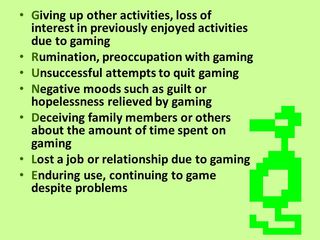
Psychosis
Fiddling Around with Ready Player One
Viewing Ready Player One through a psychiatrist's lens
Posted August 11, 2019
Introduction
I provide a monthly didactic at Rutgers Robert Wood Johnson Medical School called “FIDLER” (hence the title of this blog) that is centered around a feature-length film that we flip as a fictional case study of mental illness. The objective is not to render diagnoses per se as doing so would run the risk of stigmatizing individuals with mental illness (films universally provide inaccurate portrayals of mental disorders). Instead, the selected film serves to stimulate discussion over social media to educate learners as well as inform the public about mental illness. The following blog is a pre-posting of this month's FIDLER discussion of Ready Player One on Twitter (#fidlerRP1).
Synopsis
Ready Player One (2018) is a science fiction adventure based on Ernest Cline’s novel of the same name. The film takes place in a dystopian 2045 Ohio when much of humanity uses the virtual reality software OASIS (Ontologically Anthropocentric Sensory Immersive Simulation) to escape the abject desolation of the real world. Following the death of James Halliday, the co-creator of OASIS, a game is announced that will reward ownership of OASIS to the first person to find the Golden Easter egg. The film depicts Parzival, a gunter (egg hunter), who joins several allies to compete against a large company run by Nolan Sorrento (Mendelsohn). As of this posting, the film holds an audience score of 77% on Rotten Tomatoes and a score of 7.5 out of 10 on IMDb.
How it Relates to Psychiatry
On the surface, Ready Player One prompts the discussion of Internet Gaming Disorder. The American Psychiatric Association (APA) currently recognizes Internet Gaming Disorder (IGD) as a condition for further research. IGD is similar to Gambling Disorder, the only other behavioral (non-substance related) addiction identified in DSM-5. For some sobering (pun intended) statistics on the “incidence” of gaming (albeit not IGD), click here.

As with substance-related disorders, IGD is hallmarked by tolerance and withdrawal symptoms (1) such as sadness, anxiety, and irritability. Additional symptoms of IGD proposed by the APA adhere to the acronym GRUNDLE (Table 1), the name of the green dragon in Adventure, the 1979 action role playing game for the Atari 2600 developed by Warren Robinett.
The Game Film within the Game
Of all the Easter eggs hidden in the film, 38 have been adapted into courses at our medical school that use pop culture to teach psychiatry. Parzival befriends Art3mis to solve the second challenge of Anorak’s game in a search for Kira in the Overlook Hotel. The Shining (1980) is a film rich in subversive, psychiatric themes (2), with several interpretations rendered by authors, anthropologists, and historians (3). While the general consensus is that The Shining explores themes related to psychosis, Stuart Ullman’s disclosure of the tragedy of a former caretaker, Grady, “running amok” is foreshadowing of the origin of the Torrance family’s psychotic break. Amok is a culturally (Malaysian) bound syndrome hallmarked by episodes of sudden mass assault following a period of brooding. A brief examination of the film reveals two themes that allow for the formulation of another culturally bound syndrome that explains the behavior of the Torrance family.
A. A pre-established delusion is identified in an individual
Prior to moving into the Overlook, Jack’s son, Danny, has a terrifying premonition about the hotel that causes him to lose consciousness. During a medical evaluation, Wendy tells a visiting doctor that her son has an imaginary friend called “Tony” whose emergence coincided with Danny going to a nursery school around the time Jack dislocated Danny’s shoulder. While the physician reassures Wendy that Danny’s imaginary friend is “just a phase,” there’s a reason to believe Tony is a sign of an underlying mental disorder and therefore is not developmentally appropriate. While posttraumatic stress disorder (PTSD) is a provisional diagnosis, two scenes are critical to the formulation of a differential diagnosis. First, Ullman tells Jack that the hotel is built on the site of a 1907 Native American burial ground. Next, a precocious Danny joins the discussion about the Donner party on the way to the Overlook. The ill-fated settlers had to resort to cannibalism after their wagon train was trapped by a heavy snowfall through the Sierra Nevada.
Taken together, one possible explanation of Danny’s possession (psychosis) is that he is afflicted with Wendigo psychosis; a culturally bound syndrome that affects people who think about cannibalism. Originally afflicting individuals of the Algonquin tribe, the syndrome preserves cultural taboos by reinforcing the prohibition against cannibalism. Danny’s taking part in the adult discussion about the Donner party constitutes a significant boundary violation and likely resulted in his becoming possessed by the malevolent cannibalistic spirit of Native American lore.
B. A delusion develops in the context of a close relationship with another person that is similar in content to that of the person who already has the established delusion
Jack wanders into the Gold Room where a ghostly bartender named Lloyd serves him whiskey on the rocks. Meanwhile, Danny’s curiosity gets the best of him when he wanders into Room 237 despite the omen not to enter. When Danny returns from Room 237, he is visibly traumatized, causing Wendy to think that Jack is abusing Danny again. Wendy shows up in the Gold Room and informs Jack that Danny told her a “crazy woman in one of the rooms” was responsible for his injuries.
Jack investigates Room 237 and has an experience similar in content to Danny’s. Specifically, a mysterious female seduces Jack but then turns into a symbolic manifestation of the wicked woman from Hansel and Gretel (who lured children like Danny with candy before transforming into a witch). Jack’s incorporating content of Danny’s psychosis into his own delusional system hallmarks Shared Psychotic Disorder (SPD). Also referred to as folie à deux, SPD is a rare psychotic disorder usually found in long-term relationships with close emotional ties where delusional symptoms develop in a partner (e.g. father) of an individual who is delusional (4).
References
Internet Gaming, American Psychiatric Association, https://www.psychiatry.org/patients-families/internet-gaming
Tobia A, MD. 300: Psychiatry Taught Through the Lens of Film and Natural History, Psychology and Behavioral Science International Journal (PBSIJ-16-PER-581), 2017.
Room 237. Director Rodney Ascher. IFC Films, 2012
Parker GF, DSM-5 and Psychotic and Mood Disorders, Journal of the American Academy of Psychiatry and the Law Online Jun 2014, 42 (2) 182-190.

